|
|

|
Newsletter
No. 59
|
|
|
| WELCOME |
|
How happy I am to start a newsletter if not a conversation these days without mentioning the C word. Despite the rules and regulations still enforced surrounding the C word outbreak, mostly outside WA, I am pleased to devote the rest of this newsletter to non-virus-related things, but include some other kinds of bugs. It's winter now, still sunny days, plenty of rain and little reptile movement, so whilst continuing training I am not getting the usual calls about snakes in the workplace. Almost time for a break – if only I could travel but hey – we are not allowed to! The rest of the planet still has the C word very much not under control.
|
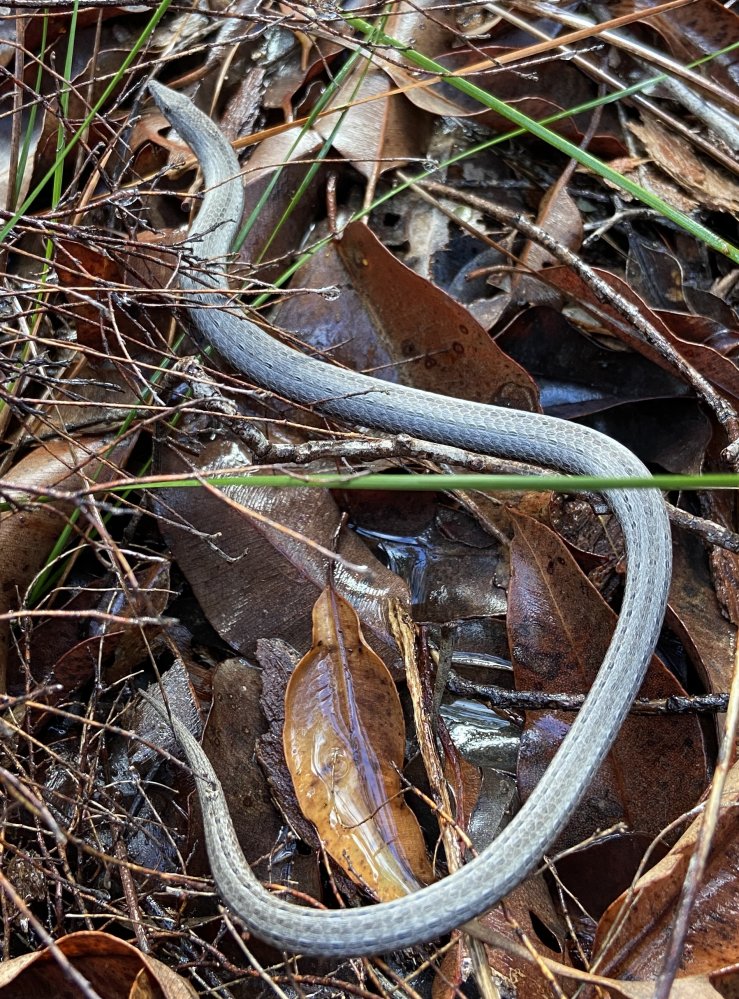
|
|
|
| FLY PARADISE |
|
No not a holiday in Fiji or the Bahamas but a very strange creature we came across during a fauna spotting job up in Neerabup. During a bush clearing project we have been relocating any species we can find to a safer Bush Forever site. After a week of successfully trapping and relocating quenda (bandicoots) we are now currently finding a few reptiles and one particular very odd creature. I had never seen one of these before, but the very knowledgeable Mike Bamford responded immediately to my emailed image and identified it as a paradise fly. The flightless female looking like a mix of grub and beetle is completely unable to fly and indeed is not even a fly but a kind of scale insect. The male paradise fly is tiny but quite magnificent looking with a plume of 'feathers' not unlike the tail of a bird of paradise. More below.
|
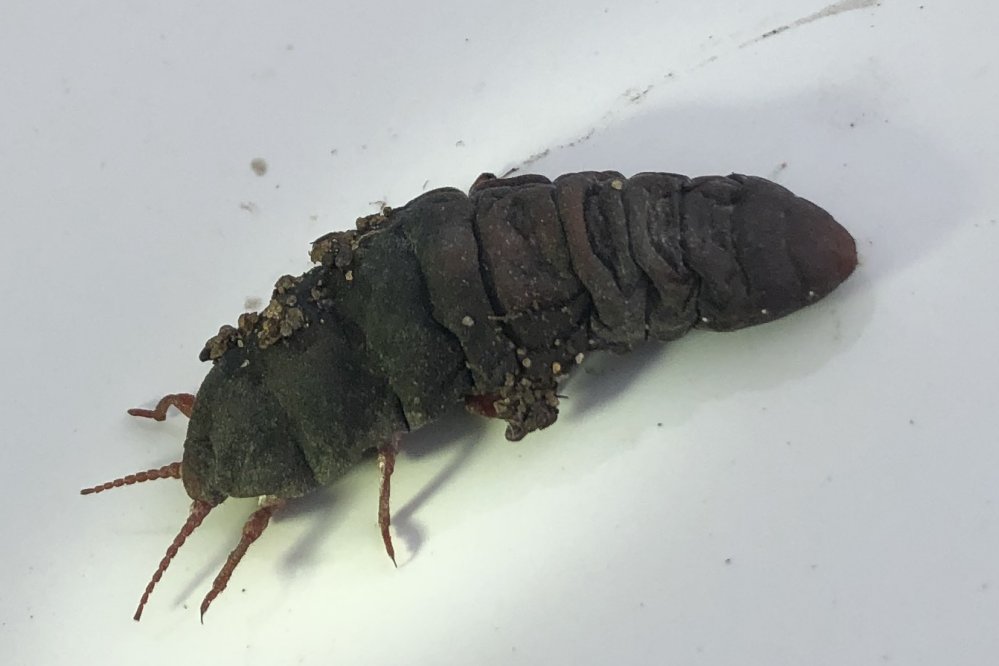
|
|
|
| GOOD NEWS FOR PANGOLINS |
|
Good news for pangolins. The Chinese government have removed pangolin scales from the approved list of ingredients for traditional medicine. China is the world's largest consumer of pangolin scales, meat and blood. They have been used as a traditional medicine for centuries. Conservationists hope this announcement will help protect remaining pangolin populations. Under the new rules anyone in China who poaches, harms, transports or trades in wild pangolins will face harsh penalties.
Pangolins are insect eating mammals native to China, South Asia and Africa. Mercilessly hunted in recent years, several species are CITES listed as critically endangered. Often called the world's most trafficked mammal, one seized shipment contained 130 tons (hard to imagine) of pangolin product including scales, apparently that equating to some 400,000 individual creatures.
|
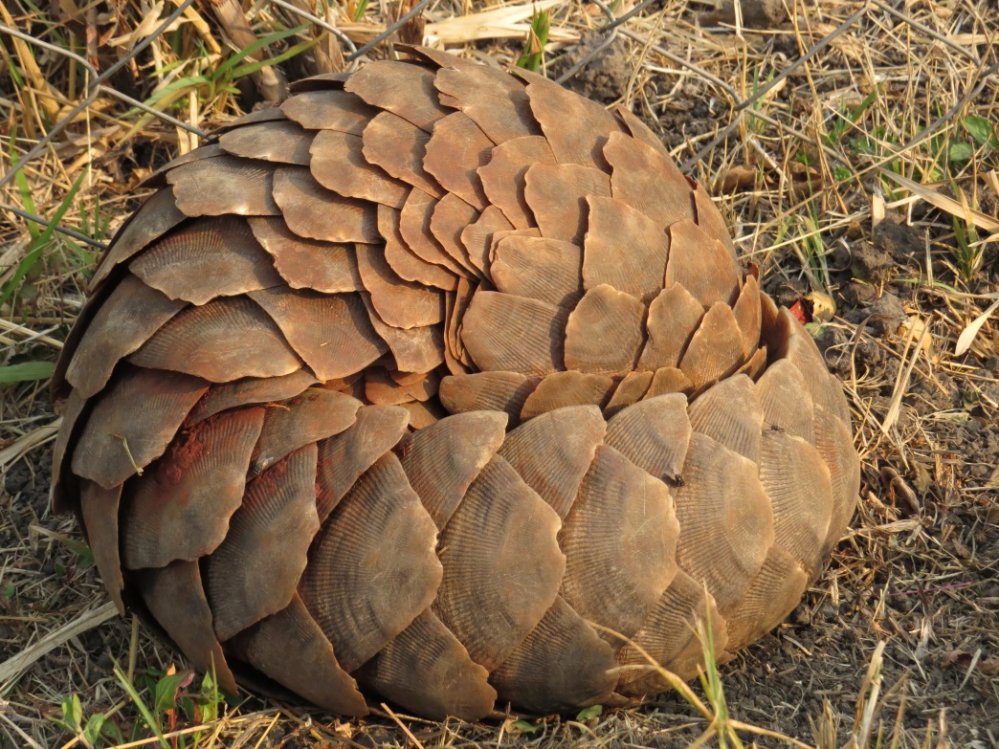
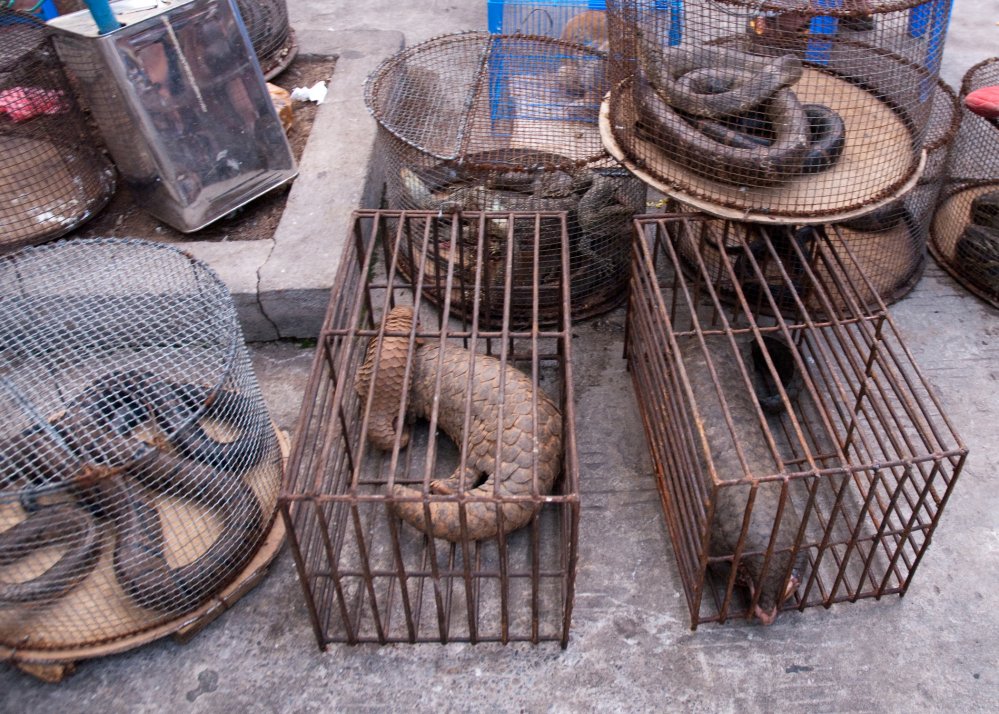
|
|
|
| PERIODIC CICADAS |
|
The periodic cicadas are emerging right now in parts of North Carolina and Virginia on the USA east coast. Up to 1.5 million per acre, emerging all at once they overwhelm any predators – so most will live long enough to breed. For 17 years these cicadas have been growing and developing underground. Known as periodic cicadas the different broods of these strange insects appear in certain areas right on cue. It is all triggered by temperature, when the soil 20cm below the ground gets to 18°C the ground starts to move as the new cohort of bugs emerge exactly 17 years after their parents did the same thing. The emerging nymphs climb up a tree or other vertical surface and moult, shedding their last skin. Once their exoskeleton dries the males start to sing. A group or chorus of cicadas can reach a painful 100 decibels. Within a couple of months silence returns to the woods, the adults have mated, eggs deposited, their life cycle complete, they all die. All is still until 17 years later it will all kick off again.
There are a few thousand species of cicadas found worldwide and several hundred in Australia. Some are annual species, others emerge every few years but the 'famous' 13 and 17 year periodic cicadas in the US are particularly remarkable.
|
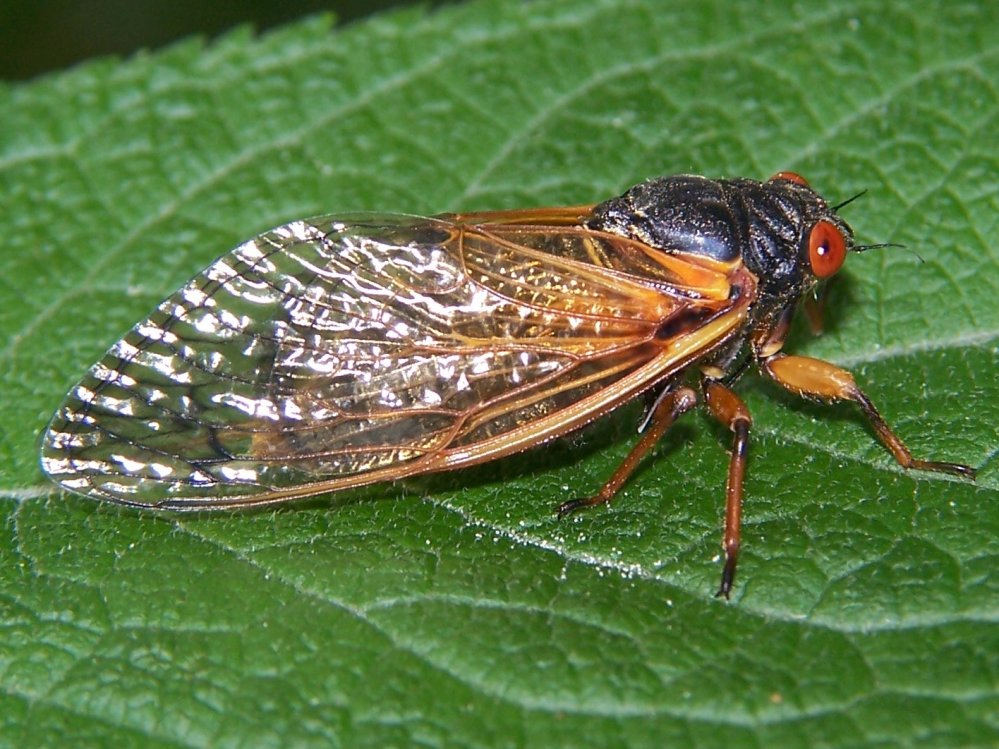
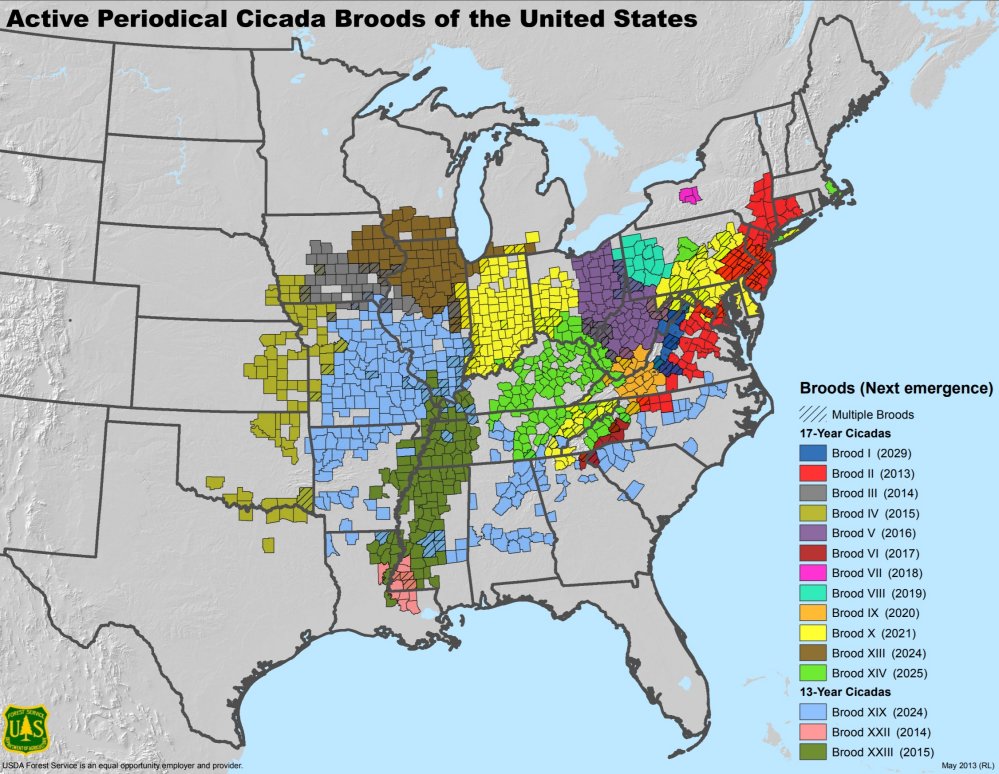
|
|
|
| CHICKENS |
|
Chickens in Pakistan have never had it so good. A government programme is encouraging people to catch locusts that otherwise devastate any crops that they encounter. Pakistan is struggling with huge locust swarms not seen for over 25 years. In return locust collectors in the Punjab province get 20 rupees (12 cents) per kilo. As a high protein food it's chickens that are feasting on the locusts and helping reduce the numbers. Locusts are also eaten by people of many countries, they are high protein, nutty and worth a go? Kate one of our employees has recently been baking cookies with added ground cricket powder apparently purchased from Woolworths. Crickets and locusts are two of the world's most commonly eaten insects. Food for thought!
|
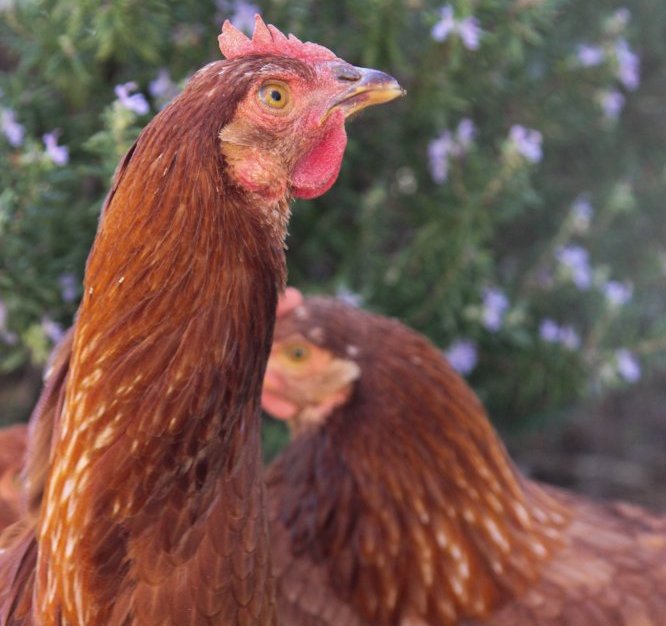
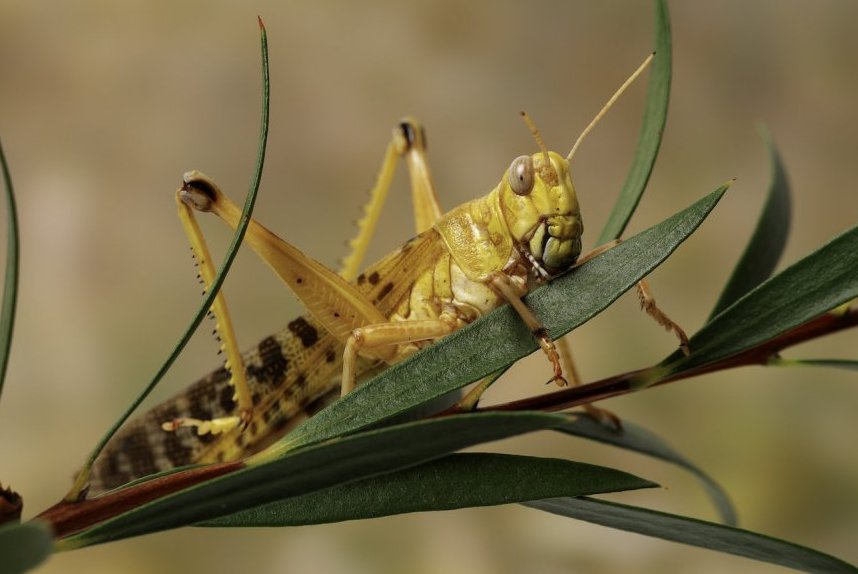
|
|
|
| SNAKE AVOIDANCE TRAINING FOR DOGS - BOOK NOW |
|
We are organizing our spring 2020 schedule, but still have training dates throughout the winter months at our Mahogany Creek location. See our dedicated website www.snakeavoidance.com.au
|
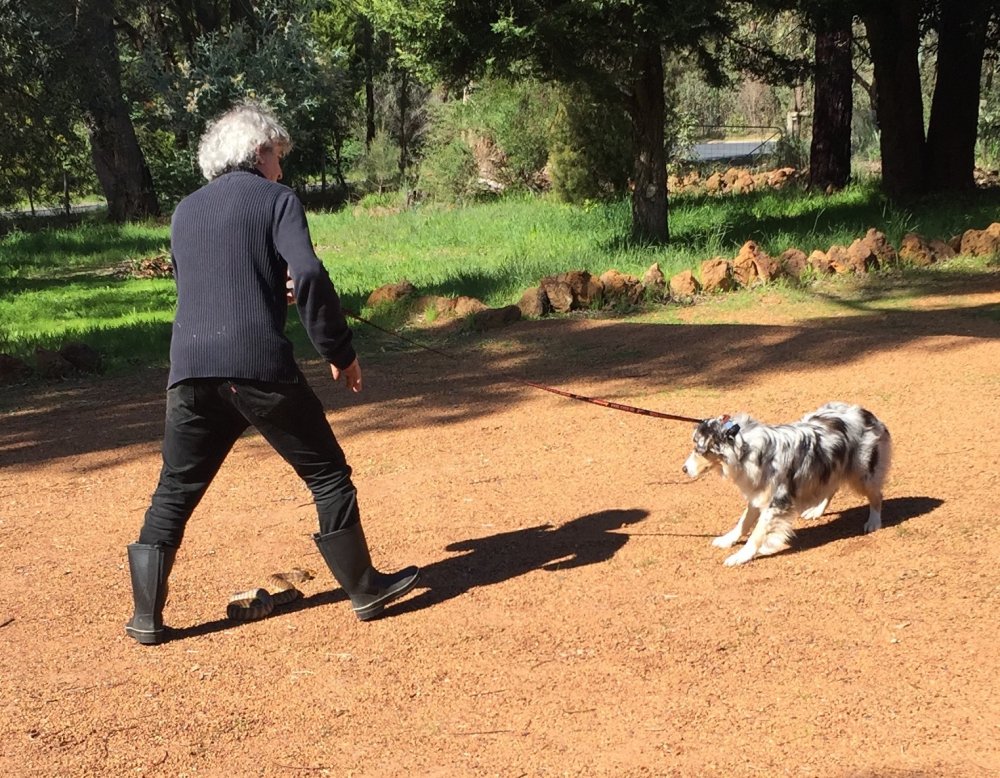
|
|
|
CONSERVATIONIST FEATURE No 10
Rachel Carson 1907-1964 |
|
Rachel was an American marine biologist, author and conservationist. Anyone interested in such 'early conservationists' should read Silent Spring, widely considered the most important environmental book of the 20th Century.
Silent Spring was published in 1962, it basically challenged the widespread use and acceptance of synthetic pesticides. She had grave concerns that mankind would create a world with a "silent spring". A bleak future, devoid of bird song and with a hugely depleted biodiversity. She called for a change in the way humankind viewed and tried to alter the natural world.
Rachel was born on a farm in Springdale Pennsylvania in the USA. Her mother encouraged a life-long love of nature and the living world. She studied zoology and was a marine biologist by profession, becoming, in 1936, only the second woman employed by the Bureau of Fisheries.
Her first book was The Sea Around Us, published in 1951. It became a bestseller and won the US National Book Award. She published other books and numerous pamphlets and articles, but she is best known for Silent Spring. It is said the mix of "scientific knowledge and poetic writing" helped Silent Spring reach a wide audience and despite considerable attacks on her work by chemical companies it did eventually lead to a nationwide ban on DDT and other pesticides in the US.
Carson herself made it clear she was not just about banning everything as was often claimed – but wanted to ensure responsible and carefully managed use of chemicals and an awareness of their impact on entire ecosystems.
If you google her it is quite amazing how much trouble this book stirred up both legally and politically in its day. Rachel certainly made the use of pesticides a major topic of public interest. She helped launch many environmental organisations and increased awareness and grassroot support of environmental issues.
|

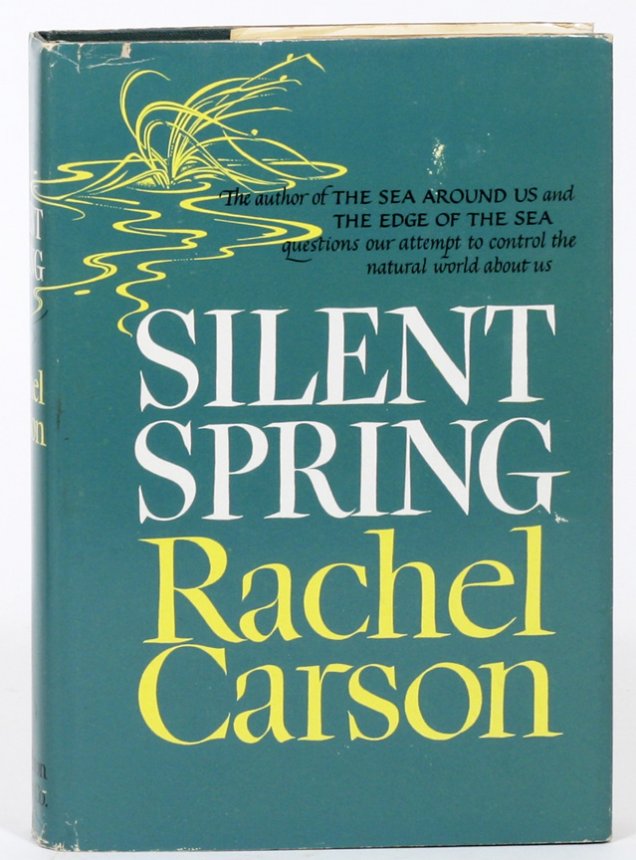
|
|
|
| EXTENDING OUR SALES OFFER |
|
Our popular SOLO SNAKE HANDLER KIT is available for the amazing discounted price of $425 inc GST (usually $555 inc GST).
|
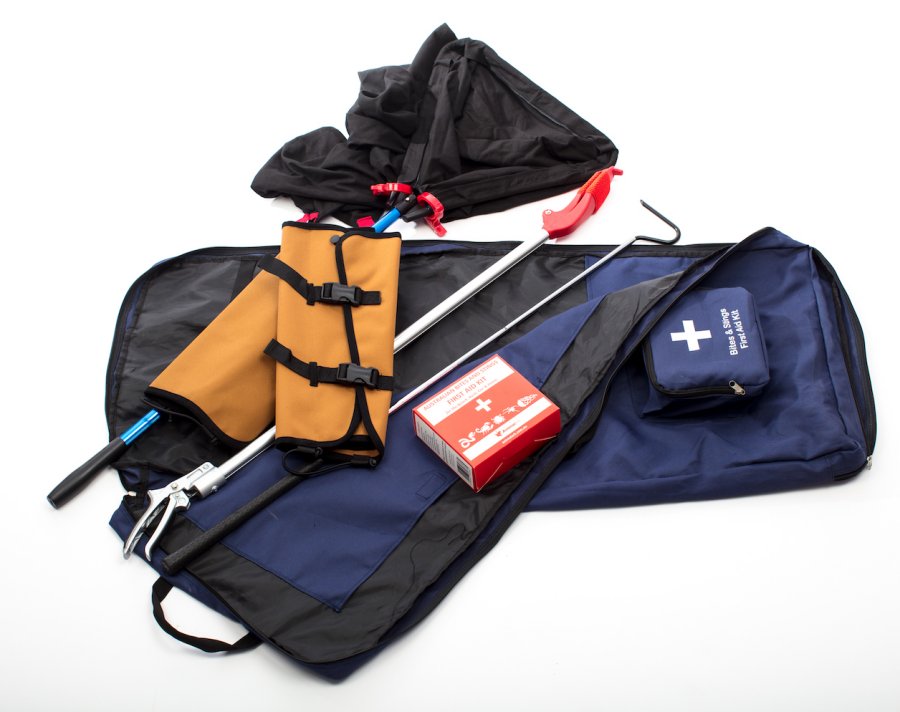
|
|
Snake catching bag and frame.
Special offer price $120 (usually $165)
|
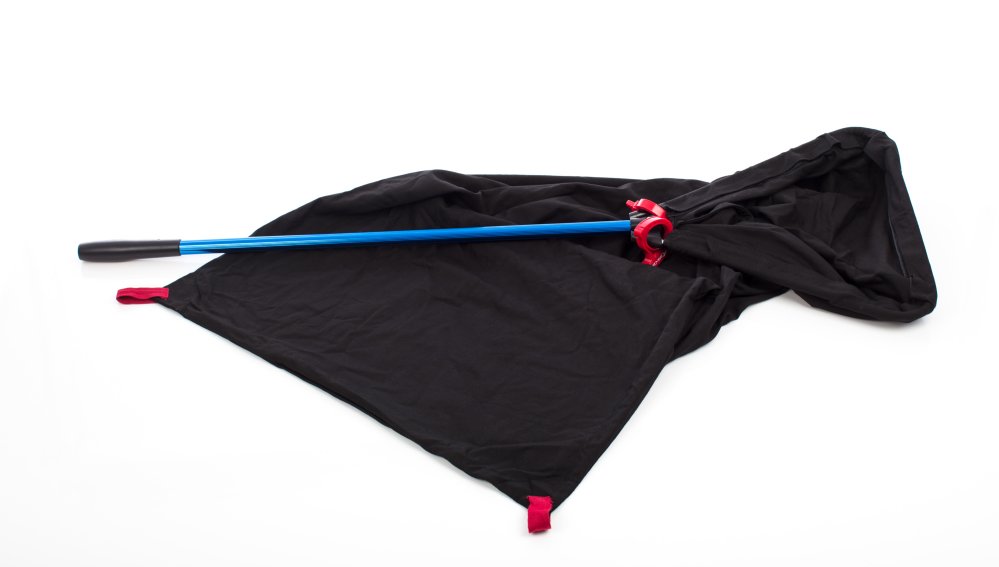
|
|
2 x SNAKE HOOKS
(one of each hook size, regular and medium)
Only $132 (usually $165).
|
>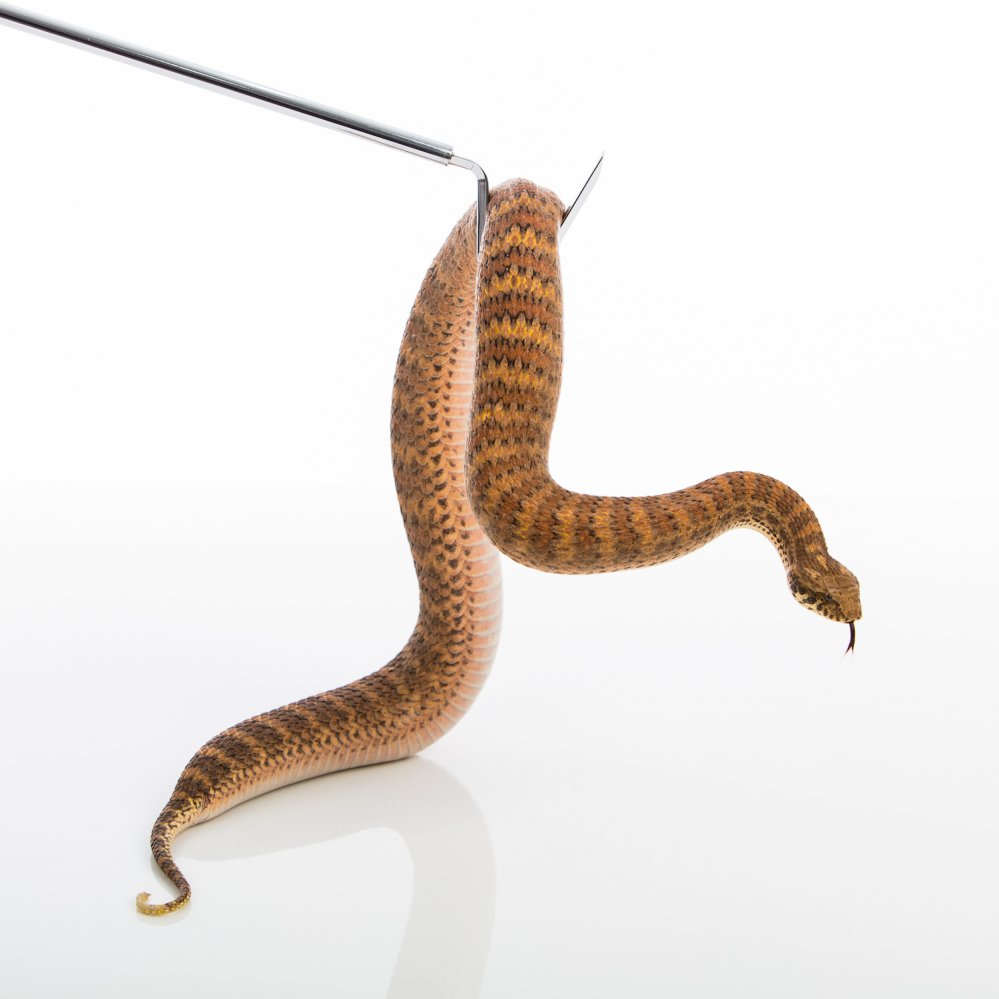
|
|
All include GST and shipping Australia wide. Phone or email orders only.
Offers ends 31 August 2020
Call 08 9243 3044, email shop@animalark.com.au to order.
|
|
|
| Animal in Focus: Paradise fly – Callipappus sp |
|
These strange creatures are a type of scale insect, a group of animals that being mostly herbivorous feed on sap from plants. I thought I knew a bit about weird bugs but I had never seen one of these before, so here's a bit about what I have found out about them.
The developing paradise fly individuals live underground where they feed on roots as they grow and moult. Little is known about how long it takes them to develop, is it months or years – no one knows. Little is also known about what roots are preferred as fuel for their development, we found ours amongst banksia and eucalypts on the coastal plain just north of Perth. The non-feeding adults emerge mainly in autumn looking to mate.
Adult males and females exhibit extreme sexual dimorphism – the sexes look very different. The male is tiny and can sit on the end of your fingertip. The female is a large grub like creature and can be over 5cm long. Once mated the female climbs up a tree or other suitable surface and using a glue exuded from her own body sticks herself into place. She then transforms, retracts her abdomen into to her body which forms a pouch like structure into which she will lay between 1,000, and 5,000 eggs depending on the species. This marks the end of her life and her gradually drying body helps protect the eggs until they hatch. The tiny legless nymphs called crawlers then climb down or drop to the ground below, where they enter the ground in search of a suitable root system upon which to feed.
|
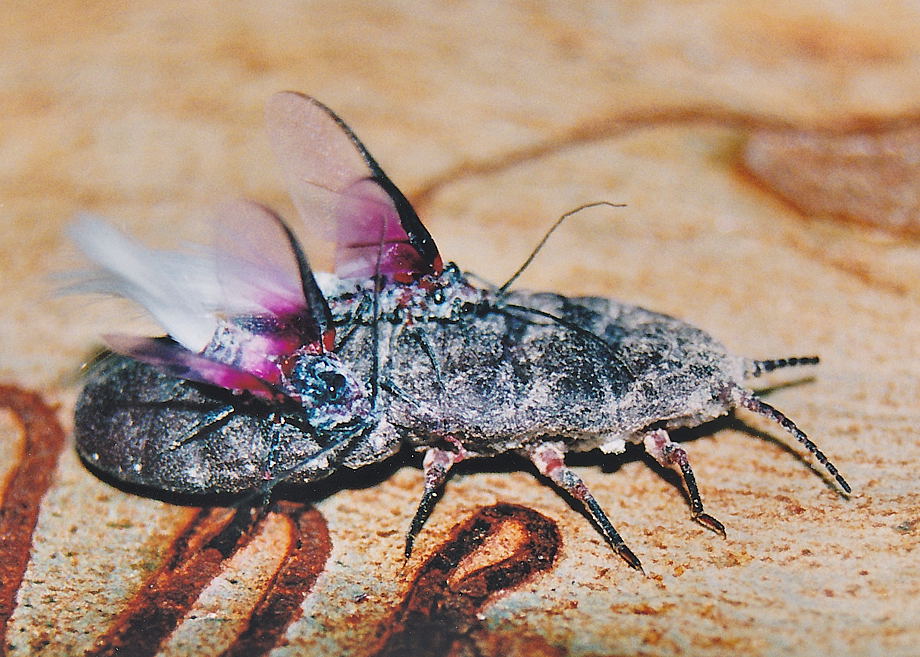
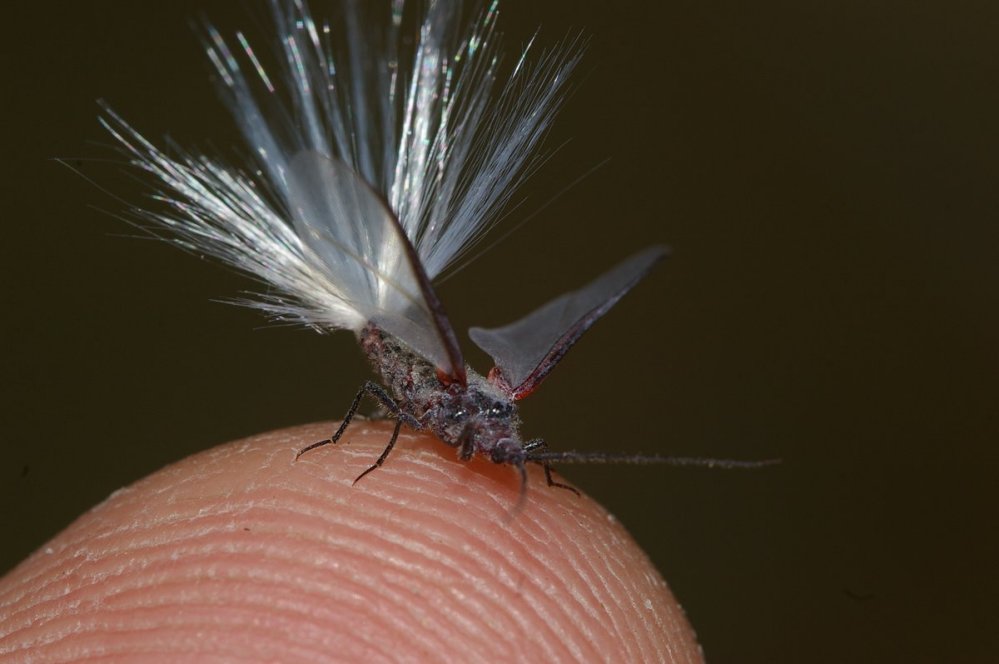
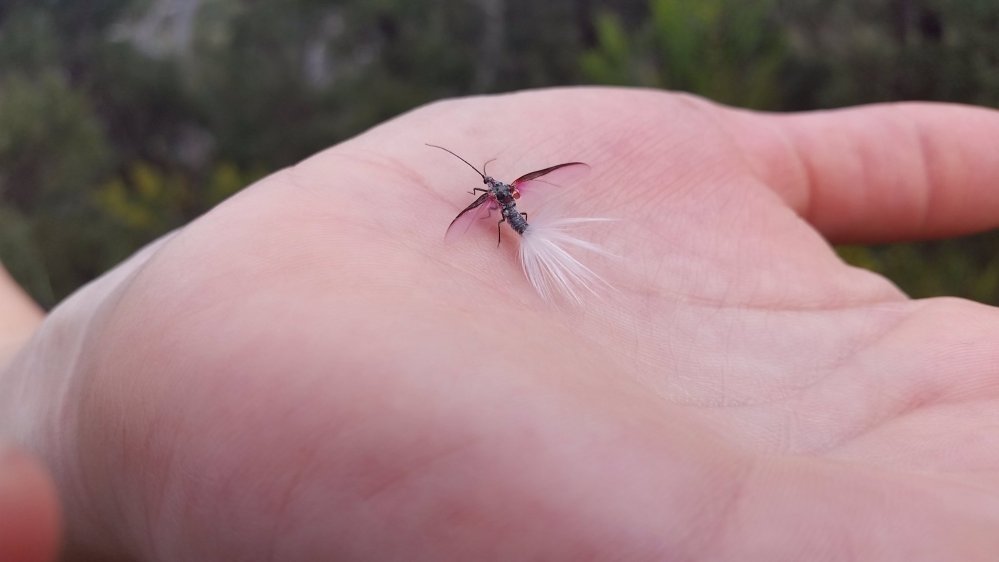
|
|
|
| Upcoming Courses and Events |
Snake Avoidance Training for Dogs
Saturday 11 July - Mahogany Creek, Perth Hills
Saturday 29 August – Mahogany Creek, Perth Hills
Saturday 5 September – Oakford area
Sunday 6 September – North Beach
Wednesday 9 September – Nannup
Thursday 10 September - Nannup
Friday 11 September - Bunbury
Saturday 12 September - Bunbury
Sunday 13 September - Bunbury
Monday 14 September - Bunbury
Saturday 19 September – Perth Hills
Sunday 20 September – Toodyay
Tuesday 22 September – Donnybrook area
Saturday 26 September – North Beach
Sunday 27 September – Yanchep area
Saturday 3 October – Baldivis area
Sunday 4 October – Mandurah area
Tuesday 6 October – North Beach
Saturday 10 October – Margaret River
Sunday 11 October – Margaret River
Monday 12 October – Margaret River
Friday 16 October - Bunbury
Saturday 17 October - Bunbury
Sunday 18 October- Bunbury
Monday 19 October – Bunbury
Saturday 24 October – Albany
Sunday 25 October – Albany
Friday 30 October - Nannup
Saturday 31 October – Nannup
Saturday 7 November - Mahogany Creek, Perth Hills
Tuesday 10 November – Donnybrook area
Saturday 14 November – Margaret River
Sunday 15 November – Margaret River
Venomous Snake Handling Course
Licensed by DBCA Parks and Wildlife Service
Friday 3 July – Mahogany Creek, Perth Hills
Thursday 16 July - Mahogany Creek, Perth Hills
Monday 27 July – Mahogany Creek, Perth Hills
Thursday 6 August - Mahogany Creek, Perth Hills
Friday 28 August - Mahogany Creek, Perth Hills
Monday 7 September - Mahogany Creek, Perth Hills
Friday 18 September - Mahogany Creek, Perth Hills
Friday 25 September - Mahogany Creek, Perth Hills
Wednesday 14 October - Mahogany Creek, Perth Hills
Tuesday 27 October - Mahogany Creek, Perth Hills
Wednesday 4 November - Mahogany Creek, Perth Hills
Thursday 19 November - Mahogany Creek, Perth Hills
Wednesday 2 December - Mahogany Creek, Perth Hills
Fauna Handling Course
Thursday 2 July – Mahogany Creek, Perth Hills – FULLY BOOKED
Wednesday 5 August - Mahogany Creek, Perth Hills
Thursday 17 September - Mahogany Creek, Perth Hills
Wednesday 18 November - Mahogany Creek, Perth Hills
Public Events
None currently scheduled.
For Snake and Fauna Handler training, events and schools, please see our diary at www.animalark.com.au/diary-of-events.
For Snake Avoidance Training for Dogs see our diary at www.snakeavoidance.com.au/dates-and-locations
Dates subject to change – best to check the websites.
Call (08) 9243 3044, SMS 0466 688 188 or email David and Jenny at info@animalark.com.au to book.
Courses held monthly and as required plus on-site and remote site training available.
|
|


|
|



















